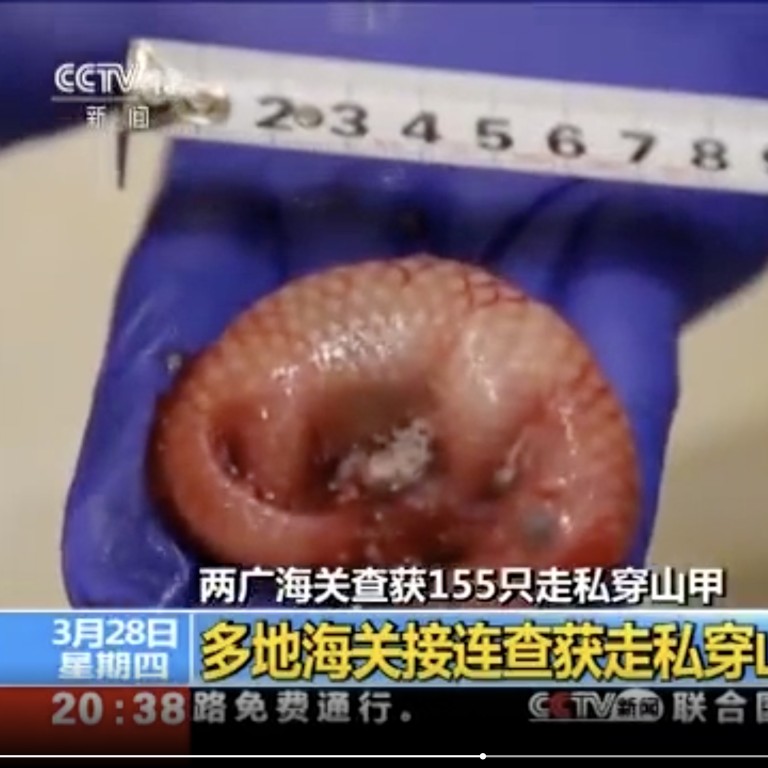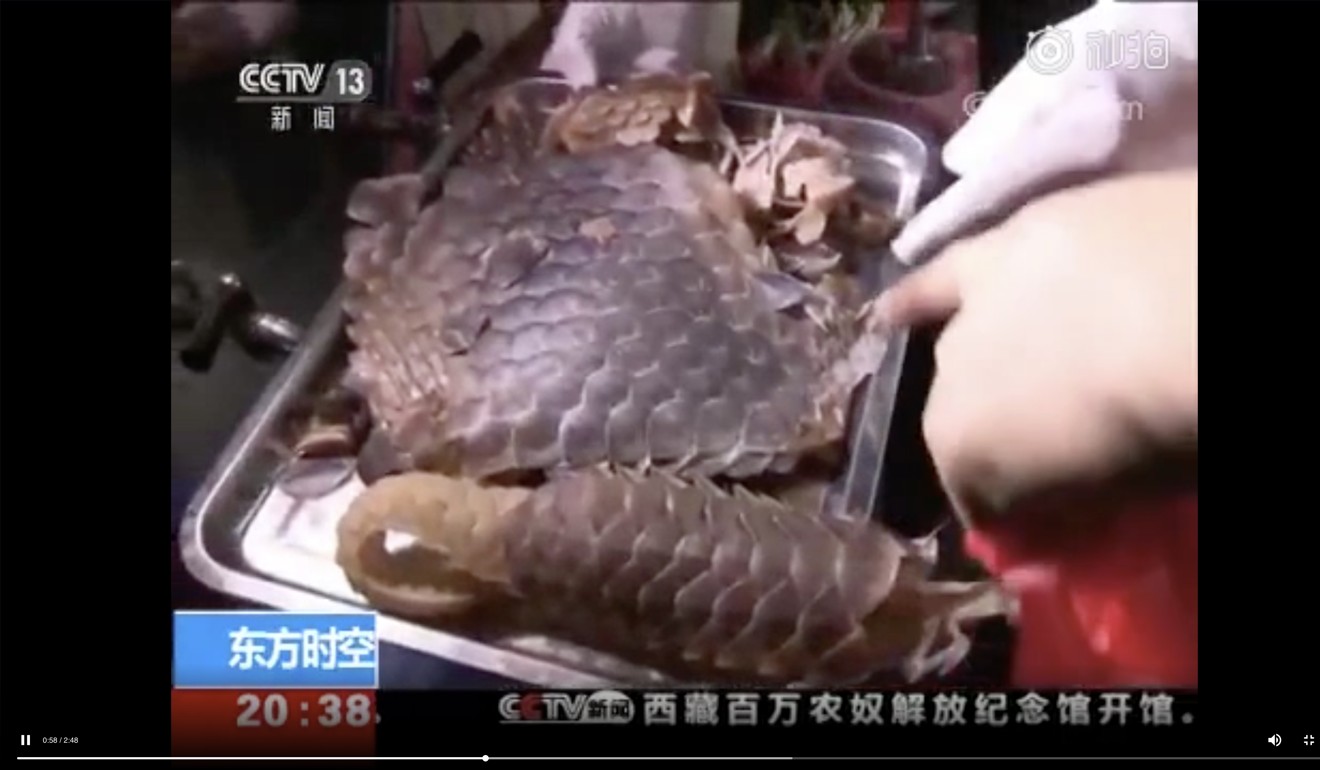
China cracks 9 pangolin smuggling gangs as demand for endangered mammal remains high
- Authorities in the country’s south round up 34 suspected smugglers from nine rings and seize over 150 pangolins
- Operation targets illegal trafficking from Vietnam
Customs officials in southern China have cracked down on pangolin smuggling gangs, with more than 150 of the mammals seized, state broadcaster China Central Television reported on Friday.
A combined 34 suspected smugglers from nine rings were rounded up last week by customs authorities in Guangdong and Guangxi, who seized 155 pangolins in total, 103 of which were still alive.
The operation targeted illegal trafficking of pangolins from Vietnam to China, with the crime still rampant despite high-profile clampdowns by the government.
In China there is high demand for the animals, believed to be the world’s most trafficked mammals. Their scales are valued ingredients in traditional Chinese medicine, their meat is considered a luxury food item and their blood is used as a healing tonic.

Besides the 155 pangolins found, customs officials also seized over 20kg of pangolin scales.
In a village in Dongxing city in Guangxi, bordering Vietnam, officials raided a gang led by a man identified by the surname Tang and found 67 live pangolins hidden in a grocery room. Dongxing is a hotbed for pangolin smuggling activities.
In Guangdong, officials in Guangzhou caught smuggling gangs with an undisclosed number of frozen pangolins – all of them pups. The suspects had transported them across the border at points where China does not establish customs branches, officials said.
Shenzhen’s customs authority cracked a gang which had allegedly smuggled and sold more than 600 pangolins since August.
Pangolins are a protected species under both mainland Chinese and international law. Gangs smuggling them are motivated by “huge profits”, Liu Kai, an anti-smuggling official in Dongxing, told CCTV.
“There is a demand. People in places such as Jiangmen and Shantou, in Guangdong, like to eat pangolins.
“Many people contacted poachers in Vietnam and asked gangs to bring pangolins into China. Then the pangolins were transported to restaurants in Guangdong.”
The animals often roll up when caught by poachers, who use methods such as scalding them with boiled water and hitting them with sticks to make them unfold.
In the latest crackdown, the officials also intercepted other endangered species and their products, including elephant tusks, rhino horns, tiger teeth, bear paws, eagles and snakes.
Meanwhile, the customs authority in Chengdu, in the southwestern province of Sichuan, said it had seized 29kg of pangolin scales and 23kg of scale powders since January, through various channels including airport searches, tourist screening and mailed packages, according to CCTV.
News portal Thepaper.cn reported that in July 2017, customs officials in Nanning, also in Guangxi, apprehended four gangs who had smuggled 5,000 pangolins in total over the previous year.
“If the situation develops at the current momentum, pangolins will soon be extinct, rather than being endangered,” Liu said.

